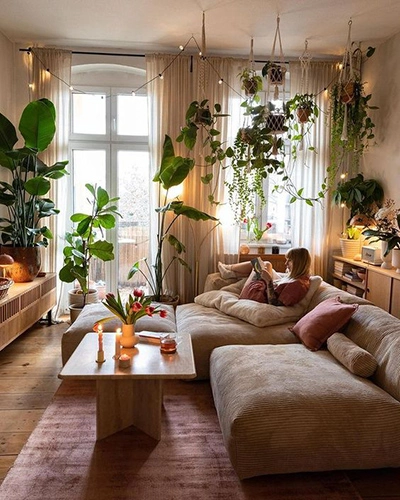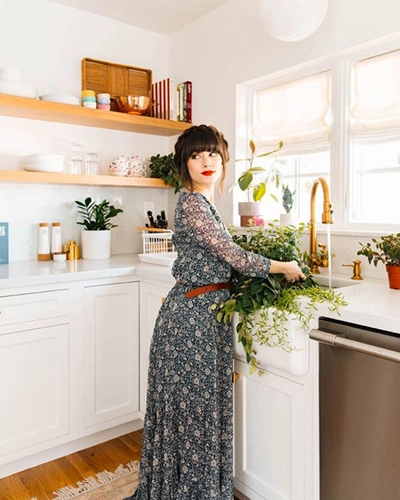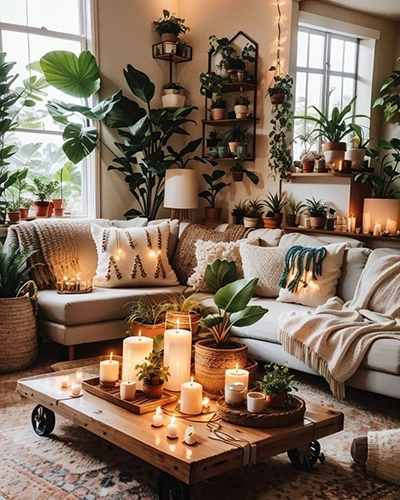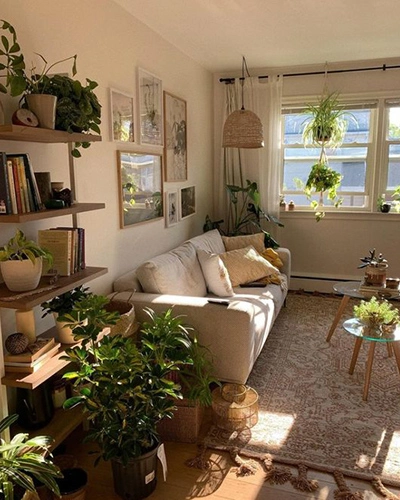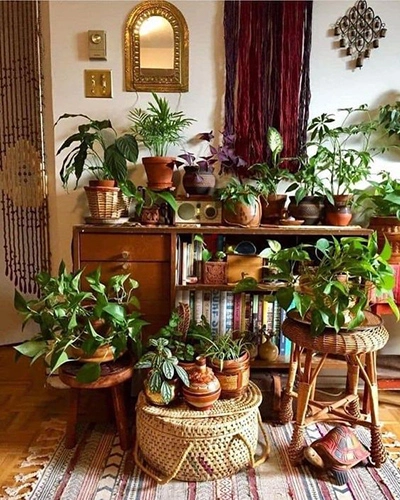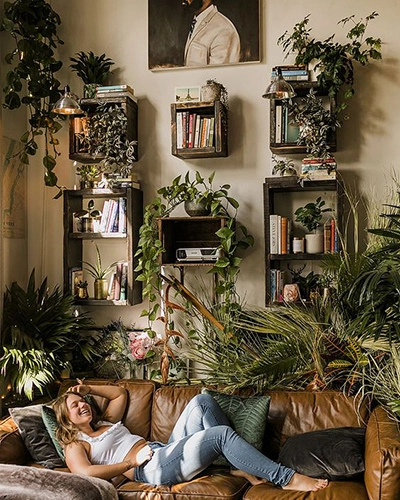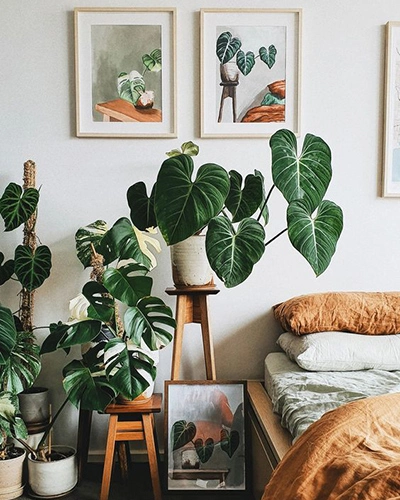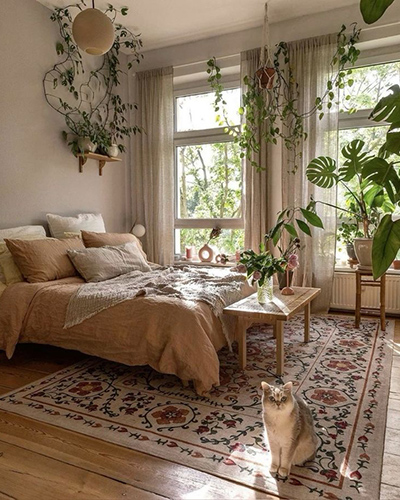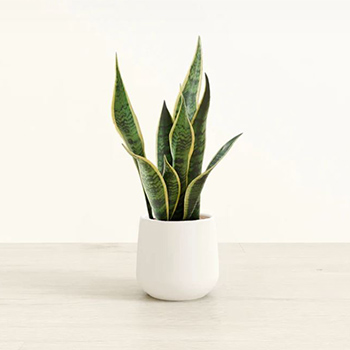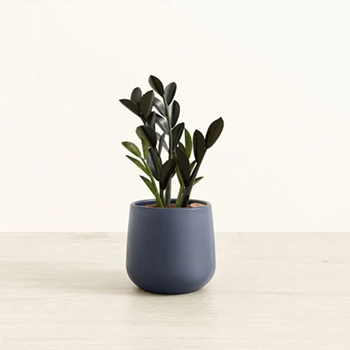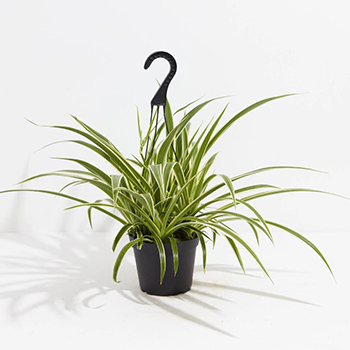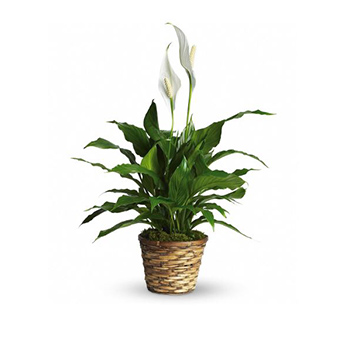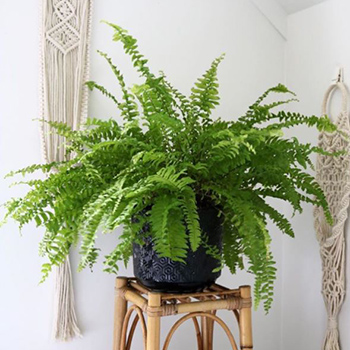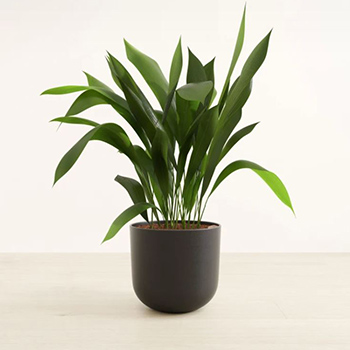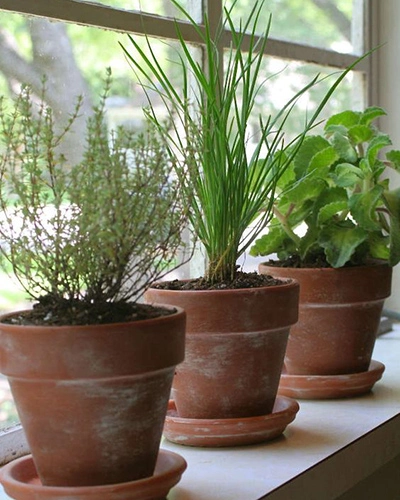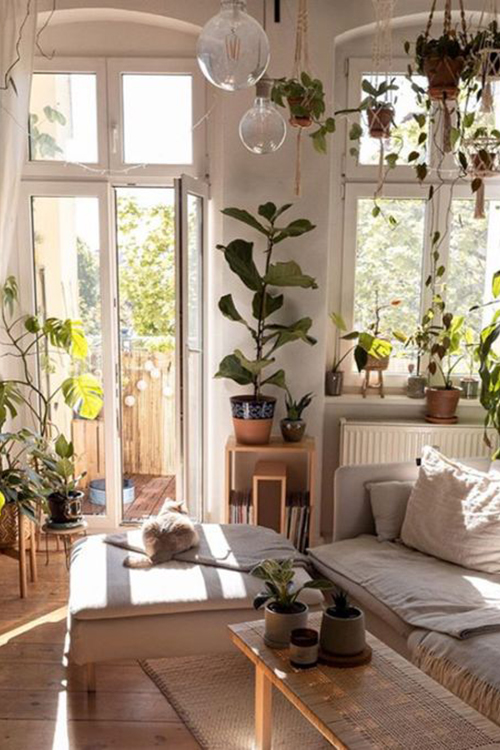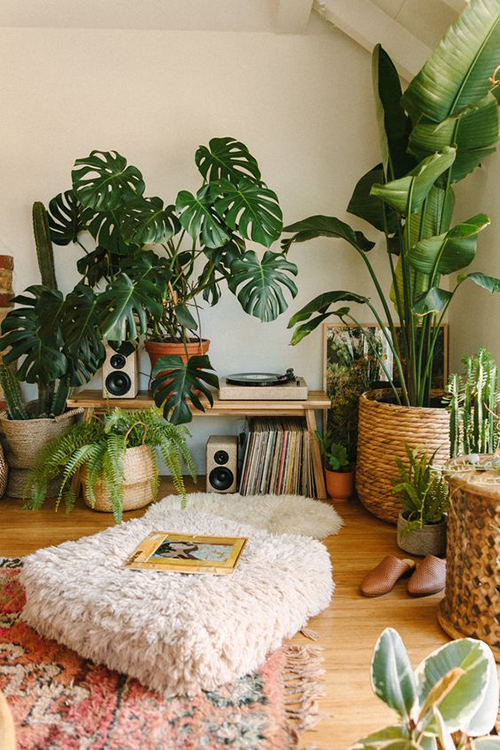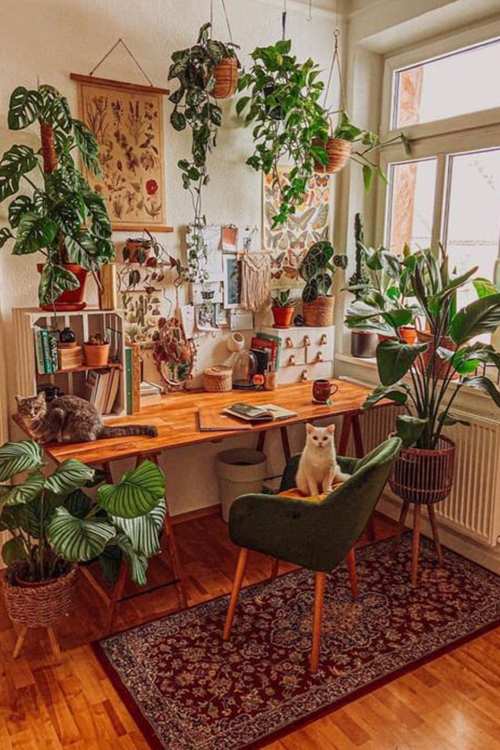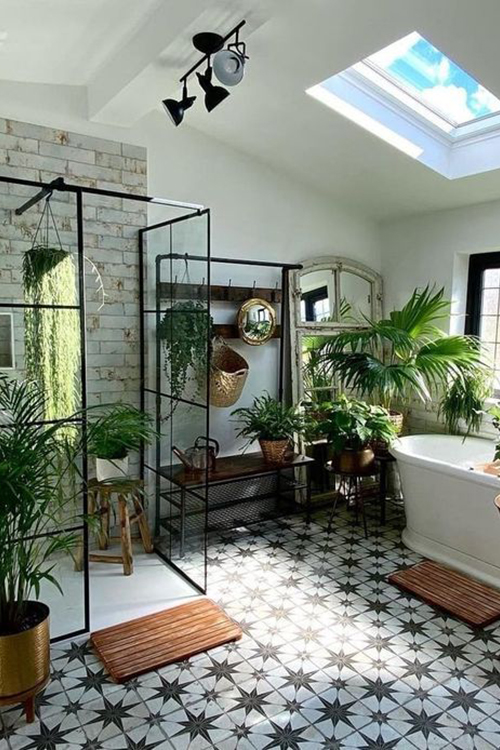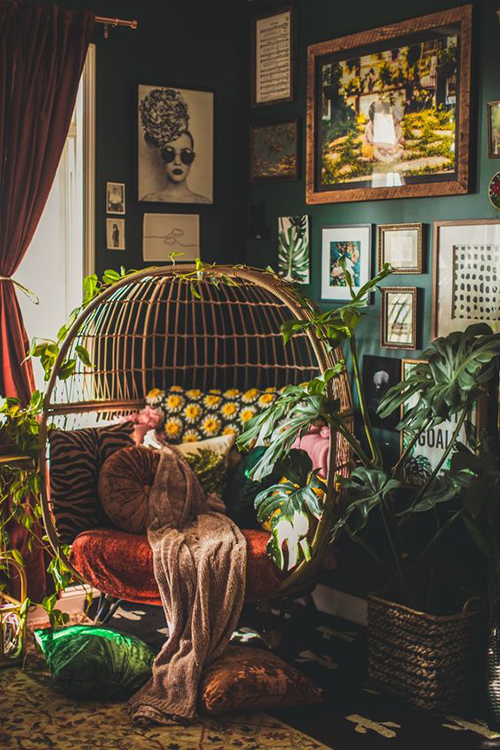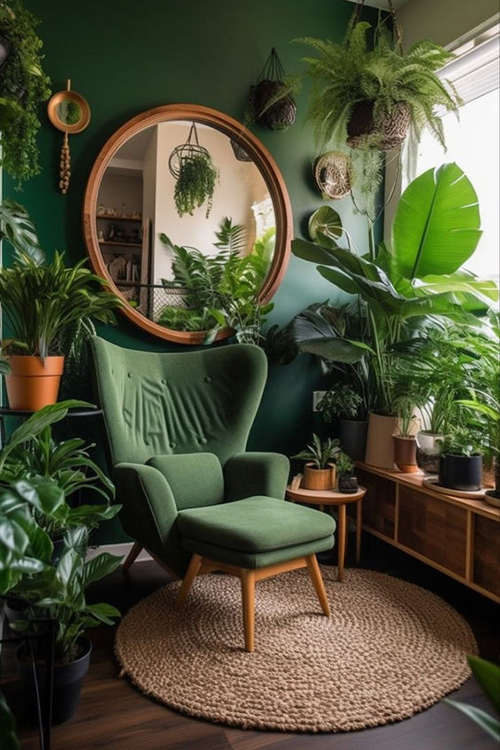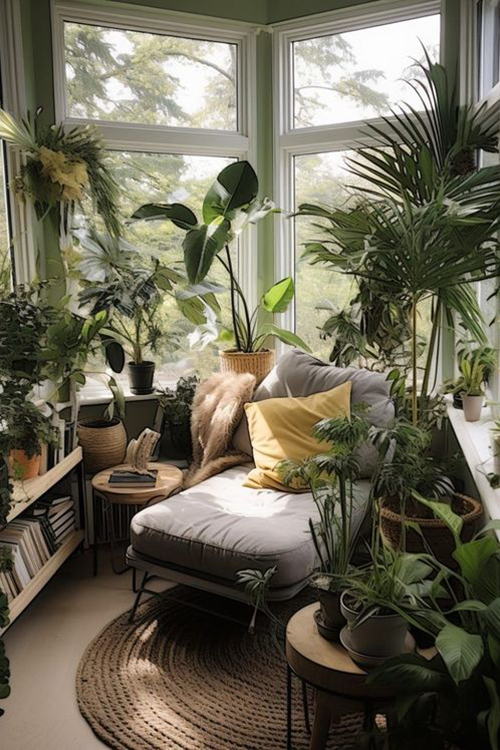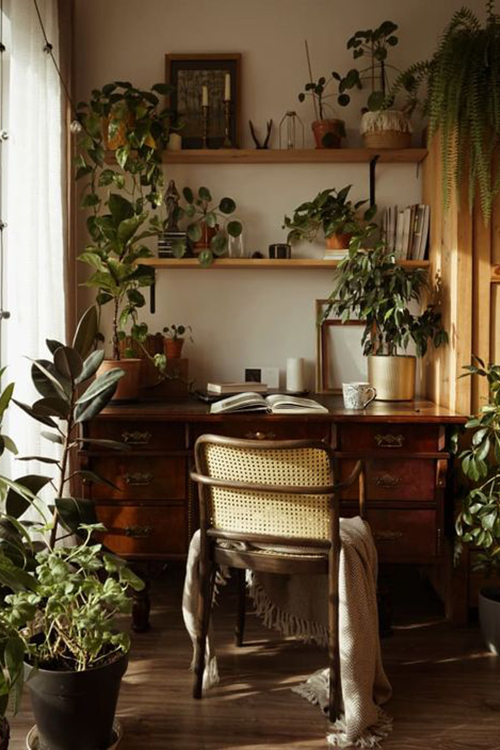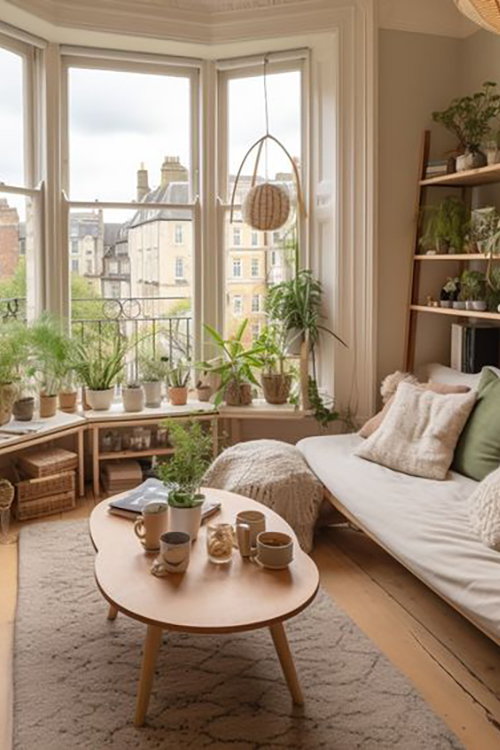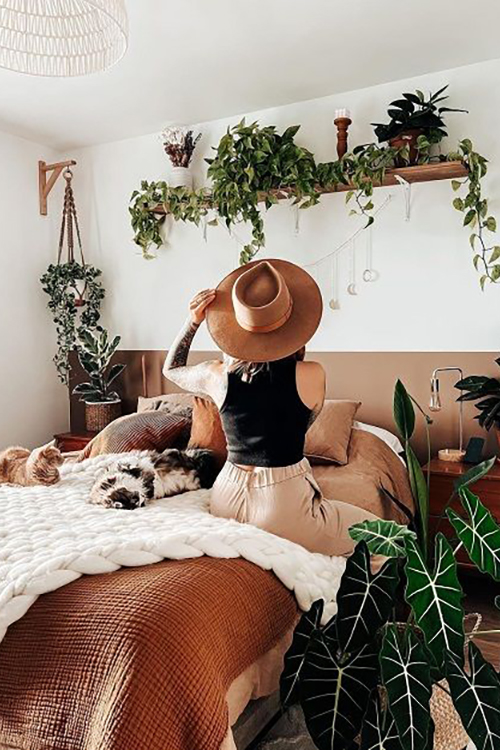Why You Need Plants In Your Apartment
Liven up your space and breathe easier by adding plants apartment! They’re natural air purifiers, stress fighters, and even boost focus.
Plus, with low-maintenance options galore, a touch of nature is within reach for any lifestyle. Add greenery, improve your well-being – bring the outdoors in!
This site contains affiliate links. I may earn a small commission at no extra cost to you.
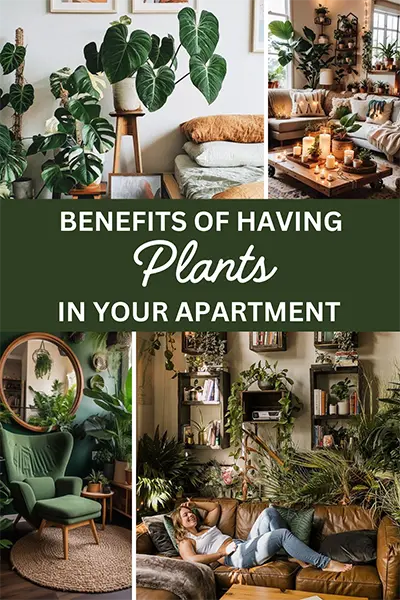
Is it good to have plants around your house?
Ever walked into a space overflowing with vibrant greenery and instantly felt calmer?
There’s a reason for that. Houseplants aren’t just aesthetically pleasing additions to your home decor; they come with a surprising amount of benefits for your mental and physical health.
So, should you spruce up your space with some leafy friends?
Let’s take a look at the perks:
Breathe Easy
Living in urban areas often means reduced air quality. But here’s where your houseplants come in as nature’s air purifiers! They absorb toxins and release oxygen, making your home environment fresher and healthier.
Stress Less, Live More
City life can be high-pressure, but studies have shown that interacting with plants can actually reduce anxiety and lower blood pressure. There’s something inherently calming about nurturing a living thing and witnessing its growth.
Sharpen Your Focus
Working from home? Plants might be the secret weapon you’ve been missing. Research suggests that having greenery in your workspace can improve concentration and even boost creativity.
A Pocket of Nature
Craving a connection to the outdoors but stuck in an apartment? Houseplants can create your own indoor oasis. Surrounding yourself with greenery brings the tranquility of nature right into your home.
Low-Maintenance Greenery
Busy schedule? No problem! There are many houseplant varieties that thrive on neglect. Succulents, air plants, and pothos are all fantastic choices for busy people who still want to enjoy the benefits of plants.
Beyond these advantages, houseplants can add a touch of personality to your space. With so many varieties available, there’s a plant to suit every style. So get creative and let your indoor jungle flourish!
Do plants purify air?
Hold on a minute before you rush out and buy every spider plant you see. While houseplants have undeniable aesthetic appeal and can bring a touch of life to your apartment, their air-purifying abilities are a bit overhyped.
Here’s the truth: houseplants can contribute to improved air quality, but they’re not miracle cures for pollution.
The Science Behind the Myth
The idea of plants as natural air filters stems from a 1989 NASA study that showed certain plants could remove volatile organic compounds (VOCs) from sealed chambers. However, this study had limitations.
The test environment was a tiny, sealed chamber, unlike the open and airy spaces of our homes. Additionally, the number of plants needed to significantly impact air quality in the study was quite high – far more than most people would realistically have in their living spaces.
So, What Can Plants Do?
While they might not be pollution-sucking machines, houseplants can still offer some air quality benefits:
They do remove some VOCs
Traces of formaldehyde, benzene, and other VOCs can off-gas from furniture, paint, and cleaning products. Plants can absorb small amounts of these pollutants.
They increase oxygen
Through photosynthesis, plants take in carbon dioxide and release oxygen. This can be a minor benefit, but it can contribute to a slightly fresher feeling indoors.
The Bottom Line
Houseplants are lovely additions to your home, but for serious air purification, consider these options:
Increase ventilation
Open windows and doors whenever possible to bring in fresh air.
Invest in an air purifier
Look for purifiers with HEPA filters, which are effective at removing dust, pollen, and other airborne particles.
Reduce pollutants at the source
Opt for low-VOC paints and cleaning products.
Enjoy the Greenery, But Manage Expectations
Houseplants can add a touch of life, improve your mood, and even offer minor air quality benefits. However, they shouldn’t be your sole strategy for combating indoor air pollution.
So, by all means, surround yourself with ferns and spider plants. Just remember, fresh air and air purifiers are still your best bets for a truly clean and healthy indoor environment.
Which indoor plant purifies the air the most?
While there isn’t a single champion when it comes to air purification, some houseplants are more effective than others at removing toxins from indoor air.
Here are a few contenders often mentioned for their air-purifying properties:
Snake Plant (Sansevieria trifasciata)
This low-maintenance beauty is a superstar at removing formaldehyde, a common VOC found in building materials and cleaning products.
Snake Plant
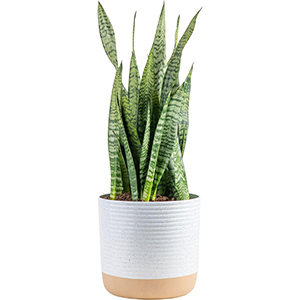
Spider Plant (Chlorophytum comosum)
This easy-to-care-for plant is known for its ability to remove a variety of toxins, including benzene and formaldehyde.
Spider Plant
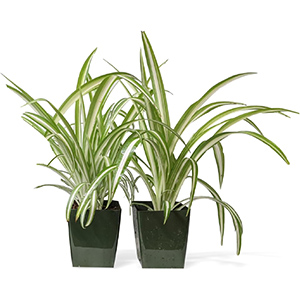
Peace Lily (Spathiphyllum wallisii)
This elegant plant thrives in low light and tackles common household toxins like ammonia and benzene.
Peace Lily
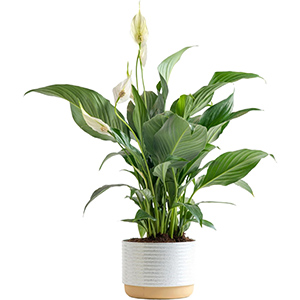
Golden Pothos (Epipremnum aureum)
Another low-maintenance option, the pothos is a champion at removing formaldehyde and is overall quite forgiving of neglect.
Golden Pathos
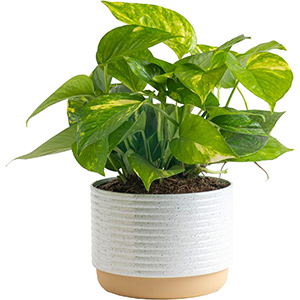
Boston Fern (Nephrolepis exaltata)
This lush fern adds humidity to the air while also removing toxins like formaldehyde and xylene.
Boston Fern
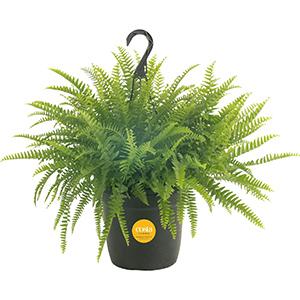
Here are some additional tips for maximizing the air-purifying benefits of plants:
Choose a variety of plants
Different plants target different toxins, so having a diverse selection can be more effective.
Place plants strategically
Position plants near potential sources of pollutants, like furniture or cleaning supplies.
Keep your plants healthy
Healthy plants are more efficient at removing toxins from the air.
Is it good to sleep with plants in your bedroom?
There is some debate about whether it’s good to sleep with plants in your bedroom. While plants can improve air quality by releasing oxygen and absorbing carbon dioxide, they also release moisture and consume oxygen at night.
Here’s a more detailed breakdown of the pros and cons of sleeping with plants in your bedroom:
Pros of having plants in the bedroom
Improved Air Quality
During the day, plants take in carbon dioxide, a gas we exhale, and release oxygen, which we breathe. This can be beneficial, especially in rooms with limited ventilation.
Reduced Stress and Anxiety
Studies have shown that interacting with nature, even indoors with plants, can have a calming effect. Having plants in your bedroom might help you feel more relaxed and promote better sleep.
Increased Humidity
Plants release moisture through transpiration, which can help add humidity to dry rooms. This can be beneficial in drier climates or during winter when indoor heating can dry out the air.
Cons of having plants in the bedroom
Reduced Oxygen Levels at Night
As mentioned earlier, plants do consume oxygen at night through cellular respiration. However, the amount of oxygen a small to medium-sized houseplant consumes is unlikely to significantly impact the oxygen levels in a well-ventilated bedroom.
Increased Moisture Levels at Night
While some humidity can be beneficial, too much can lead to mold growth. Plants release moisture at night, which could be an issue in poorly ventilated rooms or for people with allergies or respiratory problems.
Potential Allergen Source
Some people with allergies might be sensitive to mold spores that can thrive in damp soil or to pollen from flowering plants.
Making an Informed Decision:
Here are some tips to help you decide whether sleeping with plants is right for you:
Start Small
If you’re new to having plants in the bedroom, begin with a single, small, low-maintenance plant.
Choose the Right Plant
Opt for plants known for air-purifying properties and low nighttime respiration rates. Snake plants, spider plants, and peace lilies are all popular choices.
Prioritize Ventilation
Ensure your bedroom has good ventilation to remove any excess moisture released by the plants and allow for fresh air exchange.
Which plants are best in your apartment?
Here are some popular bedroom plant options based on different needs:
Low Light bedroom plants:
Snake Plant (Sansevieria trifasciata)
This low-maintenance superstar thrives in low light and even neglect. It also releases oxygen at night and is known for its air-purifying properties.
ZZ Plant (Zamioculcas zamiifolia)
Another low-light champion, the ZZ plant is known for its glossy, dark green foliage and ease of care.
Moderate Light bedroom plants
Spider Plant (Chlorophytum comosum)
A classic choice, spider plants are easy to care for, produce adorable spiderettes, and are effective air purifiers.
Peace Lily (Spathiphyllum wallisii)
This elegant plant enjoys moderate light and helps remove common household toxins from the air. It will even droop slightly when thirsty, making it easy to avoid overwatering.
Humidity Lovers
Boston Fern (Nephrolepis exaltata)
This lush fern adds a touch of the tropics and releases moisture into the air, perfect for drier climates or bedrooms with dry winter air.
Cast Iron Plant (Aspidistra elatior)
This tolerant plant thrives in a variety of conditions, including moderate light and higher humidity levels.
Which plants are great for your kitchen?
The best plants for your kitchen depend on the amount of sunlight you have and your lifestyle. Here’s a breakdown to help you choose:
Herbs
If you have a sunny windowsill, fresh herbs are a fantastic choice for your kitchen. They’re not only beautiful but incredibly useful for adding fresh flavor to your cooking.
Pros
Fresh herbs readily available for cooking, beautiful fragrance.
Cons
Need regular watering and sunlight, may require repurchasing if not cared for properly.
Light
Most herbs prefer bright, indirect sunlight (think windowsill).
Good choices
Basil, chives, mint, oregano, parsley, rosemary, thyme.
Herb Ideas for your kitchen
Certified Organic Seeds (10 Pack)
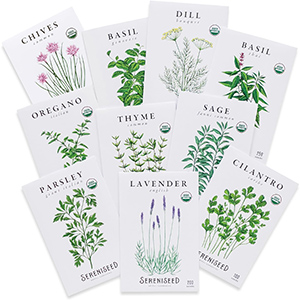
Self watering Herb Planter
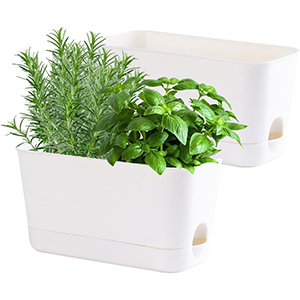
Vintage Plant Mister
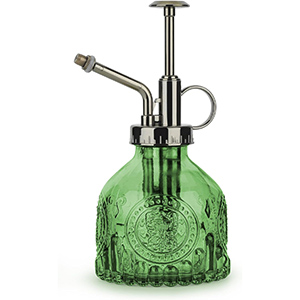
I Grow My Own Herbs Magnet
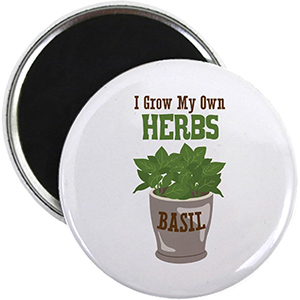
10 Benefits of having plants in your home
1. Improve Air Quality
Plants act as natural air purifiers, absorbing toxins like formaldehyde and benzene commonly found in furniture and cleaning products.
They also release oxygen, creating a fresher and healthier atmosphere.
2. Stress Relief and Relaxation
The presence of greenery has been linked to reduced stress levels.
Studies show interacting with plants can lower blood pressure, reduce anxiety, and improve mood. The act of nurturing a living thing and witnessing its growth can be calming and therapeutic.
Boosted Productivity and Focus
Working from home? Plants might be your secret weapon! Research suggests greenery in your workspace can improve concentration and even enhance creativity.
The vibrant colors and textures of plants provide visual stimulation, keeping your mind focused and engaged.
4. Natural Humidifiers
Plants release moisture through transpiration, helping to combat dry winter air or arid climates.
This is particularly beneficial in dry indoor environments, promoting better respiratory health.
5. Aesthetically Pleasing
Plants add a touch of natural beauty to your apartment, serving as decorative elements that can complement any interior design style.
They bring life and vibrancy to your living space.
6. Allergy Relief
Certain plants, such as spider plants and peace lilies, can help purify the air by removing common indoor allergens.
This is particularly beneficial for individuals with allergies or respiratory issues.
7. Natural Aromatherapy
Many plants release pleasant fragrances, serving as natural air fresheners.
This eliminates the need for artificial scents and contributes to a naturally inviting atmosphere.
8. Temperature Regulation
Plants can help regulate the temperature in your apartment by providing shade and releasing moisture through transpiration.
This natural cooling effect is especially valuable during warmer seasons, reducing the need for artificial cooling methods.
9. Feng Shui and Positive Energy
Plants are often associated with positive energy and good feng shui.
Strategically placing plants in different areas of your apartment can create a harmonious and balanced living space.
10. Reduced Noise Levels
Plants can act as natural sound barriers, absorbing and diffusing noise pollution, especially from busy streets.
Indoor plant care tips
Having houseplants is a fantastic way to add life and vibrancy to your apartment, but keeping them thriving requires a few essentials.
Here’s a quick rundown of what you’ll need to become a successful indoor plant parent:
Research Your Plant’s Needs
Each plant species has specific requirements for light, water, humidity, and fertilizer. A little research goes a long way in keeping your leafy friend happy.
Observe Your Plants
Pay attention to signs of thirst (wilting leaves) or overwatering (drooping, yellowing leaves). Adjust your watering habits accordingly.
Don’t Overcomplicate It
There are many low-maintenance plants that thrive with neglect. Choose varieties that suit your lifestyle and forgetfulness factor.
By following these essentials and providing some TLC, your indoor plant collection will flourish and bring you joy for years to come!
Essentials for your plants
Small watering can
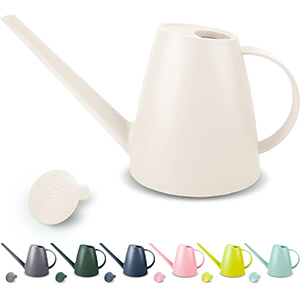
organic plant fertilizer
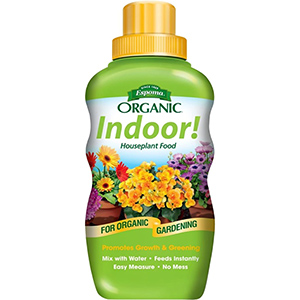
wooden plant display
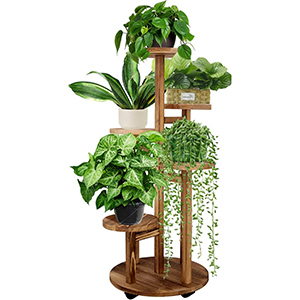
Moisture Meter
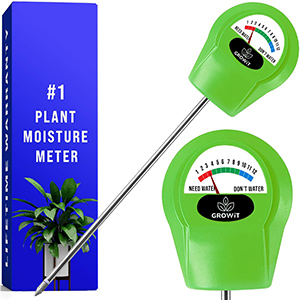
pruning scissors

Moss Poles
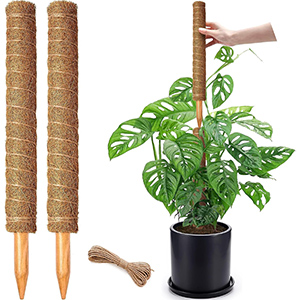
Living in an apartment doesn’t have to feel confined. Surround yourself with leafy friends and discover a world of benefits beyond beautiful decor.
Plants act as natural air purifiers, fight stress and anxiety, and can even boost your productivity.
Craving a connection to nature? Plants bring the tranquility of the outdoors right into your space, even in the heart of the city. There’s a plant for every lifestyle, from low-maintenance succulents to air-purifying superstars.
So, breathe easy, live happy, and add a touch of green to your apartment. You (and your apartment) will thank you for it!

